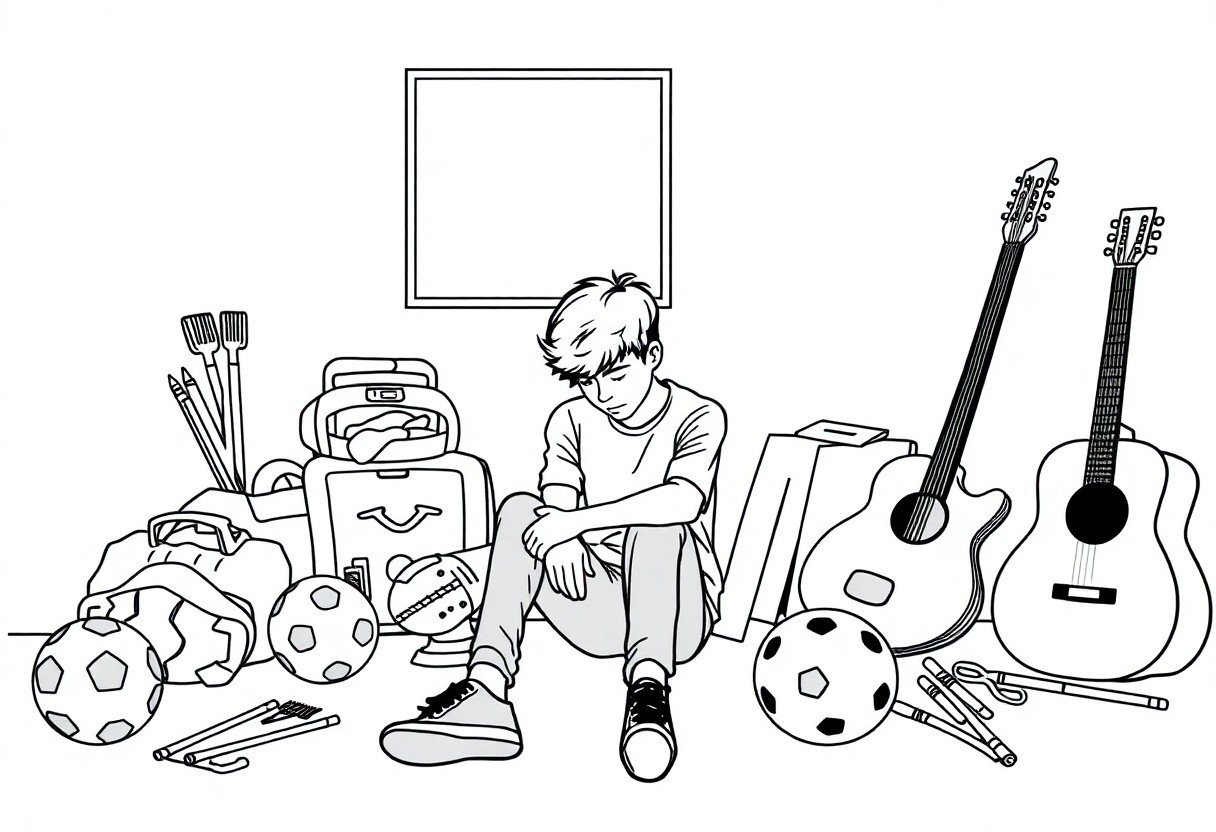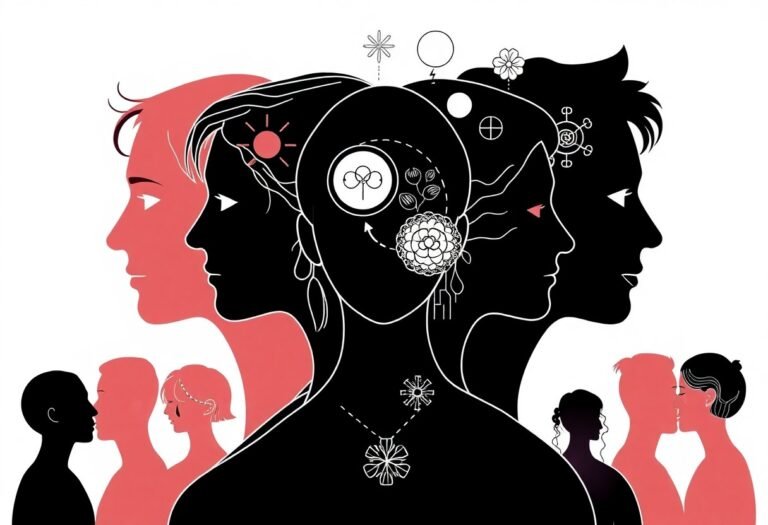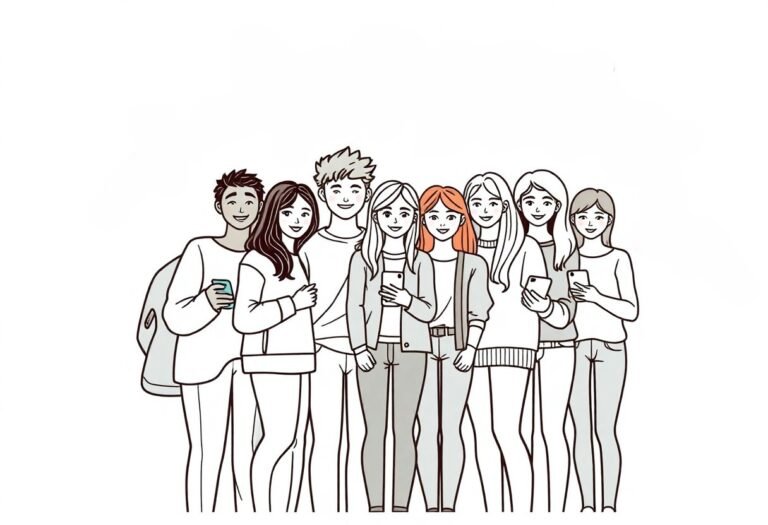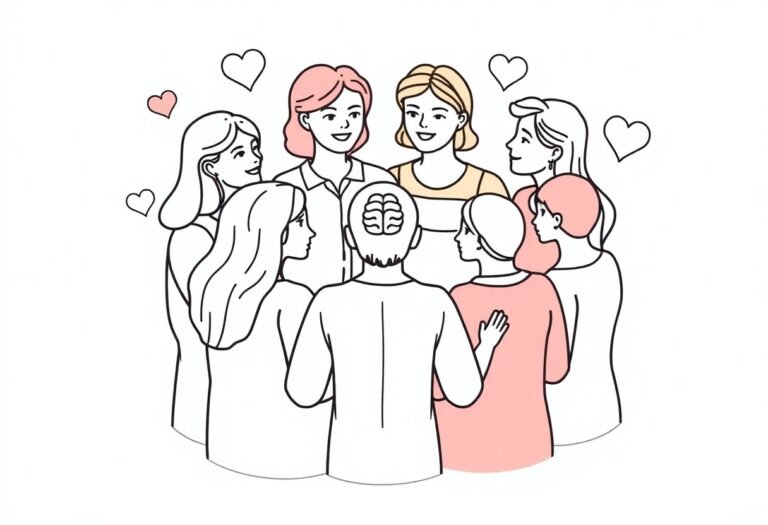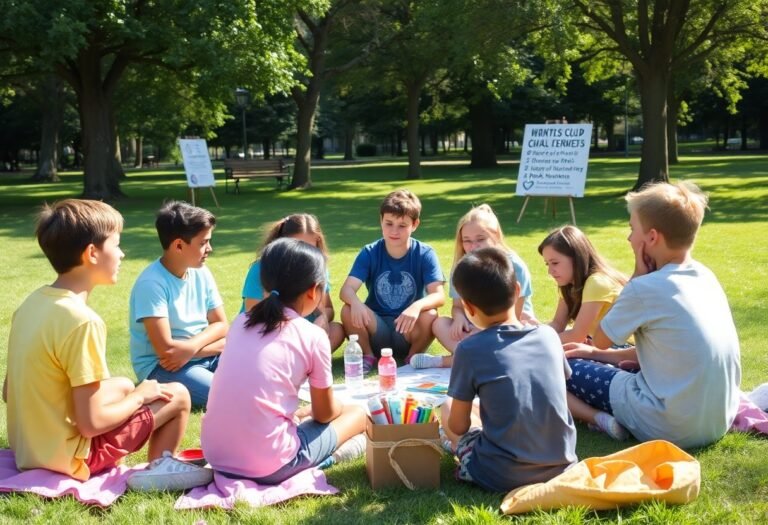Is Your Teen’s Withdrawal From Enjoyable Activities A Red Flag For Mental Health Issues?
Mental health concerns can manifest in various ways, and one alarming sign in your teen may be a sudden withdrawal from enjoyable activities. If you notice your child is no longer engaging in hobbies or social events they previously loved, it could indicate underlying mental health issues such as depression or anxiety. This type of teen withdrawal and mental health connection is crucial to understand, as timely intervention can lead to better outcomes. Understanding these changes in behaviour can help you support your teen and guide them towards the help they might need.
Key Takeaways:
Recognising the signs of teen withdrawal and mental health issues is vital for early detection and support.
- Withdrawal from activities that once brought joy can signal underlying mental health issues such as depression or anxiety.
- Changes in social behaviour, including reduced interest in friendships and extracurricular activities, warrant attention.
- Open communication with your teen is imperative; creating a safe space for dialogue can help them express their feelings.
- Observing patterns over time is important; temporary mood fluctuations are normal, but prolonged withdrawal can be concerning.
- Seeking guidance from mental health professionals can provide support and resources for both teens and their families.
Understanding Withdrawal
Before evaluating your teen’s behaviour, it’s vital to grasp what withdrawal truly means. Withdrawal encompasses a range of behaviors where your teen may distance themselves from friends, activities, or hobbies they previously enjoyed, often signaling underlying emotional or mental challenges. Recognizing these signs can help you in understanding their mental health and initiating timely conversations.
Common Causes of Withdrawal
At times, your teen’s withdrawal may stem from various factors, including academic pressure, social anxiety, or even bullying. Additionally, they may struggle with personal issues like self-esteem or body image concerns, making it tough to engage in previously enjoyable activities. While transitions like puberty can also contribute to withdrawal, persistent disengagement raises red flags.
Signs of Withdrawal in Teens
On top of reduced interest in social or extracurricular activities, withdrawal can manifest in several ways. Look out for consistent signs such as increased isolation, irritability, or changes in eating and sleeping habits. As the situation progresses, your teen may also exhibit emotional responses like sadness or frustration when discussing their interests and friendships.
Also, it’s important to note that withdrawal can have significant implications for your teen’s overall well-being. If you observe decreased communication or a lack of enthusiasm for engaging with others, consider it a sign that they may be struggling emotionally. Make it a priority to check in, listen without judgment, and encourage your teen to seek support when needed. Their willingness to open up can lead to positive changes in their mental health journey.
Mental Health Issues Linked to Withdrawal
There’s a strong connection between your teen’s withdrawal from enjoyable activities and various mental health issues. If you notice a significant decline in their enthusiasm for hobbies, friendships, or schoolwork, it could indicate underlying struggles. It’s vital to pay attention to these signs and address them promptly to ensure your teen receives the necessary support.
Depression
An increase in withdrawal can be a telling sign of depression. Your teen may lose interest in previously enjoyed activities, isolating themselves and displaying changes in mood and energy. Being aware of these signs is key in providing the right support.
Anxiety Disorders
Below the surface, anxiety disorders might also manifest through withdrawal. Your teen may feel overwhelmed by social situations or responsibilities, leading them to retreat from activities that once brought them joy.
And addressing anxiety disorders early can greatly improve your teen’s quality of life. Excessive worry, restlessness, and irritability often accompany these conditions, making common activities feel daunting. Acknowledging these feelings and providing a supportive environment can encourage your teen to seek help and gradually re-engage with social and recreational activities, fostering both mental and emotional resilience.
The Role of Social Media
For many teens, social media is a primary means of connection and self-expression. However, it can drastically affect their mental well-being, leading to withdrawal from enjoyable activities. Understanding the role social media plays in your teen’s life may provide insight into their behaviour and potential mental health concerns.
Impact on Teen Engagement
Behind the allure of likes and shares lies a reality that can diminish face-to-face interaction. When your teen focuses more on online validation, they may become disengaged from real-life experiences, hobbies, and social gatherings, leading to isolation.
Comparison and Isolation
Isolation is often intensified by the constant barrage of curated images and lifestyles presented on social media. Your teen may find themselves engaging in negative self-comparisons to their peers, resulting in feelings of inadequacy and social withdrawal.
Comparison and Isolation
| Aspect | Description |
|---|---|
| Self-Esteem | When teens compare themselves to idealized lifestyles online, it can lead to lowered self-esteem and anxiety. |
| Social Withdrawal | Feeling disconnected from peers may drive them further into isolation, avoiding real-life interactions. |
Also, it’s vital to recognise that social media may give the false impression of connection while fostering profound feelings of loneliness and alienation. Engaging in these comparisons can deter your teen from participating in enjoyable activities, escalating feelings of despair or hopelessness. Encouraging a healthy relationship with social media while fostering genuine connections outside it is imperative for your teen’s overall mental health.

Mental Health in Children and Adolescents | Mental Health and Demographics
Importance of Open Communication
Your teen might feel isolated during challenging times, which makes it vital for you to foster an environment of open communication. Approaching conversations with empathy and understanding can help your teen voice their feelings without fear of judgment. This approach not only strengthens your relationship but may also uncover underlying issues that require attention.
Encouraging Dialogue
Dialogue is necessary for understanding your teen’s emotions and experiences. Suggest regular check-ins or casual conversations about their day. This will normalise discussing feelings and alleviate the pressure associated with more direct inquiries. By making these discussions routine, you create a safe space for expressing concerns.
Building Trust with Teens
Beside encouraging open dialogue, you must work to build trust with your teen. Establishing a foundation of trust allows them to feel secure sharing their vulnerabilities, making it easier for both of you to navigate any challenges that arise. Show respect for their thoughts and feelings, and maintain confidentiality when they confide in you. By being consistent and reliable, you will help them feel safe in your support, paving the way for more constructive and honest conversations in the future.
But trust-building requires effort and time. Respond calmly when your teen shares their feelings; avoid reacting with anger or judgment, as this can damage your relationship. Allow them to express anger, sadness, or confusion without fear of retribution. Demonstrate genuine interest in their thoughts and feelings, reinforcing that their concerns matter to you. Active listening, where you reflect back what they say, can show that you truly value their perspective. By doing so, you foster a positive environment where your teen feels comfortable opening up, which is necessary for addressing their emotional well-being effectively.
When to Seek Professional Help
After noticing prolonged withdrawal from activities your teen once enjoyed, it’s important to take action. If these changes persist for a few weeks or accompany other alarming signs, consulting a mental health professional may be beneficial. These experts can assess the situation, provide guidance, and recommend appropriate interventions tailored to your teen’s needs.
Warning Signs of Serious Issues
Along with withdrawal, pay attention to significant shifts in your teen’s behaviour, such as changes in sleep patterns, appetite, and academic performance. Expressing feelings of hopelessness, intense mood swings, or thoughts of self-harm warrants immediate consultation with a professional. These could be indicators of deeper issues that require timely intervention.
Types of Mental Health Professionals
Among the various professionals available, you may encounter psychologists, psychiatrists, social workers, and counsellors. Each plays a unique role and provides different types of support for mental health. Understanding their specialisations can help you choose the right one for your teen.
| Type of Professional | Role |
| Psychologist | Provides therapy for emotional issues |
| Psychiatrist | Can prescribe medication |
| Social Worker | Offers counseling and support services |
| Counselor | Helps with specific emotional issues |
| Therapist | Focuses on communication and emotional growth |
Professionals in mental health vary widely in their training and the therapies they provide. Understanding who can help your teen is vital. Each type of provider brings unique strengths and perspectives to the table, whether through therapeutic techniques or medication management. Engaging with a few professionals can also enable you to find the best fit for your child’s specific needs. Knowing that help is available can be empowering for both you and your teen.
| Professional Type | Services Offered |
| Clinical Psychologist | Focuses on diagnosis and treatment |
| Psychiatrist | Medication management |
| Licensed Therapist | Therapies for coping and healing |
| School Counselor | Support for academic and social issues |
| Family Therapist | Works on family dynamics and relationships |
Strategies for Encouraging Engagement
Keep in mind that encouraging your teen to re-engage with enjoyable activities can be a gradual process. Start by gently introducing them to familiar hobbies and interests while being patient and supportive. Offer to participate alongside them, creating an environment that feels safe and inviting. Show enthusiasm for their passions and provide a space where they can express themselves freely.
Reintroducing Enjoyable Activities
Any effort to rekindle your teen’s interest in past hobbies should focus on their comfort levels. Start small, allowing them to ease back into activities that once brought them happiness. You can suggest low-pressure settings where they can rediscover these interests at their own pace, helping to reduce any anxiety associated with participation.
Fostering Connections with Peers
Any approach to fostering connections with peers is important for your teen’s overall mental health. Encourage social interactions by facilitating gatherings or group activities that align with their interests. Connecting with friends can provide valuable support, increasing feelings of belonging and reducing feelings of isolation.
A positive peer environment can significantly impact your teen’s mental well-being. Social connections promote a sense of security, boosting their confidence and offering emotional support. Make sure to encourage your teen to reach out to friends and engage in activities together, whether in-person or virtually. Regular social interactions can help alleviate feelings of loneliness and foster resilience, making it important to prioritize these connections in your teen’s life.
To wrap up
Upon reflecting, it’s vital to recognise that your teen’s withdrawal from enjoyable activities can signal underlying mental health issues that require attention. Observing changes in their interests or engagement can serve as an early warning sign. Taking proactive steps, such as fostering open communication and seeking professional help, can significantly improve your teen’s emotional well-being. Your vigilance and support are vital in helping them navigate these challenges, making it important not to overlook any signs of distress.
FAQ
Q: What are some common signs that my teen may be withdrawing from enjoyable activities?
A: Common signs include a noticeable decrease in participation in sports, hobbies, and social outings that they once enjoyed. Additionally, you may observe changes in their mood, such as increased irritability or sadness, and a tendency to isolate themselves from family and friends.
Q: How can I differentiate between typical teenage behaviour and signs of mental health issues?
A: While it’s normal for teenagers to go through phases of wanting time alone or pulling away from family, significant and prolonged withdrawal from activities they once loved can be a sign of deeper issues. Look for patterns such as persistent sadness, drastic changes in sleep or appetite, and a lack of interest in social connections, which could indicate a need for further evaluation.
Q: What steps should I take if I suspect my teen is facing mental health challenges due to withdrawal?
A: Start by having open and honest conversations with your teen, expressing your concerns in a supportive manner. If their withdrawal continues or worsens, it may be beneficial to consult with a mental health professional who can assess their situation, offer guidance, and suggest appropriate interventions.
Q: Can changes in my teen’s environment, such as school or friendships, contribute to their withdrawal?
A: Yes, significant changes in a teen’s environment, including difficulties at school, bullying, or shifts in social circles, can certainly impact their mental health and lead to withdrawal from activities. External stressors may trigger feelings of anxiety or depression, prompting them to retreat. It’s important to stay aware of these environmental factors when assessing their behaviour.
Q: What support can parents provide to help their teens re-engage with pleasurable activities?
A: Encourage your teen to re-explore activities they once enjoyed by offering to participate together or finding new interests that might pique their enthusiasm. Creating a supportive and non-judgmental environment where they feel safe expressing their feelings is vital. Additionally, providing access to mental health resources, such as therapy or support groups, can facilitate their journey back to engagement.

